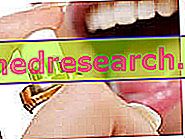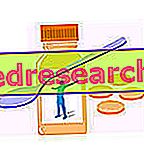Related articles: Extrasystoles
Definition
Extrasystoles are abnormal heart beats, both at the site and at the time of onset. The contraction impulses, in fact, arise prematurely with respect to the normal stimulus; moreover, they almost always do not originate in the sino-atrial node (as happens instead in normal conditions), but in other areas of the heart.
The abnormal depolarization spreads before the impulse generated by the sinus node arrives, so the heart performs an early heartbeat compared to the sinus rhythm (extrasystoles interrupt the normal heart rhythm).
Based on the site of origin of the premature contraction, atrial (less dangerous) and ventricular extrasystoles can be distinguished (in predisposed subjects they can generate complex arrhythmias).
Extrasystoles can be asymptomatic or cause palpitations. In some cases, they are felt as a strong blow in the chest or in the throat, or as missed or skipped heartbeats.
Extrasystoles are extremely frequent, both in completely healthy people and in patients with underlying heart disease. In most cases, this is not a disturbing and pathological disorder; in fact, these changes in heart rate can be observed in a healthy person due to intense emotions or stress conditions or sleep deprivation. Other factors that can predispose to the appearance of an abnormal and anticipated cardiac contraction include caffeine abuse, smoking and the use of drugs, such as cocaine.
Extrasystoles are frequent during certain heart conditions, including heart attacks, cardiac ischemia, increased heart volume or heart failure. Thyroid diseases (especially hyperthyroidism) and pathological processes affecting other organs other than the heart (eg meteorism, constipation and gallbladder diseases) may also be an indirect cause of extrasystoles. Sometimes, a fever and an insufficient level of potassium in the blood trigger off premature beats. Other times, the extrasystole is idiopathic (it does not originate from a precise cause).
The extrasystole can be isolated or appear in series. In the first case, the extrasystolic beat is anticipated with respect to the sinus rhythm and is followed by a longer than normal pause before the new heartbeat. In the second case, the extrasystolic beats can occur in succession, giving rise to a different rhythm from the normal one (generally, with a higher frequency) or alternating with sinus beats.
The diagnosis is based on an electrocardiographic examination. Usually, in patients who are not suffering from heart disease, treatment is not necessary, except to avoid the triggers. Sometimes ß-blocking drugs can be prescribed (eg after an acute myocardial infarction). Other antiarrhythmics, although effective against extrasystoles, should be avoided, as they increase the risk of more serious arrhythmias.
Possible Causes * of Extrasystoles
- Anxiety
- Hiatal hernia
- Heart attack
- Heart failure
- Hyperthyroidism
- Heart failure
- Constipation



